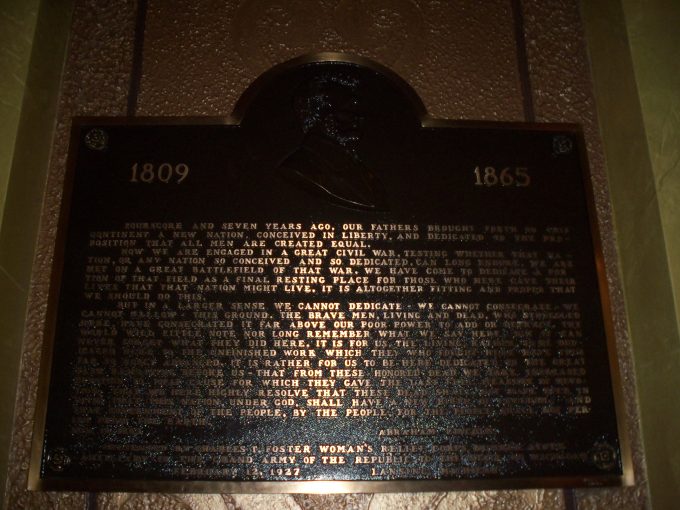
Tuesday, 25 April 2017
So let no one judge you in food or in drink, or regarding a festival or a new moon or sabbaths, Colossians 2:16
Colossians 2:16-19 are instructional, and they are so plain and simple to understand that it is almost impossible to believe people that some people can’t get them right. This is especially so with verses 16 & 17. But the modern Hebrew Roots movement, along with countless theologians, and even whole denominations from the past and present, simply ignore what Paul says, and they go about mandating things which are as clearly set aside in Christ as anything else He came to accomplish.
Having just shown in the preceding verses that the Law of Moses is annulled, completely and entirely, he now explains what that means in regards to observances mandated under that same law. This list is not speaking of Gentile observance, but of those things found in the Law of Moses itself. They are complete, they are fulfilled, and they are no longer required. To say otherwise is a heresy because it is then saying that Christ did not fulfill the law, which He did – in fact – fulfill. Don’t be a heretic; instead pay attention to Paul’s words.
“So let no one…” This is referring to each individual’s personal standard of life and practice in Christ. What Paul is warning against is that each person is to not be swayed by the false judgments of anyone else in relation to himself. He wants no one to “judge you.” One stands or falls based on where they put their hopes. If one places their hope in the work of Christ Jesus alone, then that person is to not let another person judge them based on anything else but that finished work of Christ.
The words, “in food or drink” refer solely to the dietary restrictions of the Jews as mandated under the Law of Moses. There is now no such dietary restriction in relation to this law because the law is annulled in Christ. Because it is annulled, the command to not eat pork died with the annulling of the law. The command to not eat shellfish died with that same annulment. This is true for every single dietary restriction found in the Law of Moses. They no longer exist because the Law of Moses is superseded by the New Covenant. A Christian is to not let anyone judge them for eating whatever they wish. This is plain, clear, and not difficult to understand.
He next says, “or regarding a festival.” The Greek word is heorté, and it refers to a feast day, such as the feasts of the Lord found in Leviticus 23. Any mandated feast day of the Law of Moses is done; it is completed in Christ; and it is obsolete. A Christian is to not let anyone judge them for not observing such a feast day. This is plain, clear, and not difficult to understand.
Paul next says, “or a new moon.” The New Moon is the first day of each month of the Hebrew calendar. This note from Paul is referring to observing this day as a type of celebratory feast under the Law of Moses. It is referred to over 20 times in the Old Testament, and it is an observance which the Jewish people faithfully adhered to. A Christian is to not let anyone judge them for not observing a New Moon. This is plain, clear, and not difficult to understand.
Finally for verse 16, Paul mentions “sabbaths.” The word in Greek is plural, and it is referring specifically to the weekly Sabbath Day requirement of the Old Testament. The plural is noted because it was a weekly feast day, and thus there were many sabbaths each year. It is also inclusive of any special Sabbaths which were mandated under the law. The same plural terminology is found in the Old Testament concerning the weekly Sabbath over 100 times. Exodus 31:31 for example, while speaking of the weekly Sabbaths, refers to them in the plural. The Sabbath is fulfilled in Christ. Hebrews 4:3 says that we rest in Him now. Therefore, a Christian is to not let anyone judge them for not observing a Sabbath Day. This is plain, clear, and not difficult to understand.
As a point of doctrine: There is no such thing as a Sunday Sabbath. The Sabbath is a Saturday, and only a Saturday. Christian tradition eventually started to claim that worshiping on the Lord’s Day (Sunday) had replaced the Saturday Sabbath. The claim is that this day of worship was now the “Sunday Sabbath.” This is incorrect. There is one Sabbath, and it is a Saturday. It is fulfilled in Christ. He is our Sabbath rest (Hebrews 4:3).
In support of what is stated here, the following verses are given –
“But now after you have known God, or rather are known by God, how is it that you turn again to the weak and beggarly elements, to which you desire again to be in bondage? 10 You observe days and months and seasons and years. 11 I am afraid for you, lest I have labored for you in vain.” Galatians 4:9-11
Paul calls such observances, “weak and beggarly elements,” and he calls them “bondage.” Don’t pursue that which is weak and beggarly, and do not be brought into another’s bondage.
“One person esteems one day above another; another esteems every day alike. Let each be fully convinced in his own mind. 6 He who observes the day, observes it to the Lord; and he who does not observe the day, to the Lord he does not observe it. He who eats, eats to the Lord, for he gives God thanks; and he who does not eat, to the Lord he does not eat, and gives God thanks.” Romans 14:5-6
Paul is clear that whatever day a person observes or does not observe is totally up to the individual. Whatever a person eats or does not eat is also completely up to that individual. There are no such requirements levied on the follower of Christ.
“I will also cause all her mirth to cease,
Her feast days,
Her New Moons,
Her Sabbaths—
All her appointed feasts.” Hosea 2:11
Here in Colossians, Paul uses the same form as that of Hosea 2:11. It shows us that the things he is talking about in this verse – “feast days, New Moons, and Sabbaths” – are the same as which were required under the Law of Moses. They are now fulfilled in Christ; their being mandated for God’s people is annulled, and a new dispensation has been introduced which has set aside the previous one. To reintroduce these as requirements is to say that what Christ did was insufficient to save. It is to set aside His grace and attempt to merit God’s favor on one’s own merits. It is a self-condemning act. It is heresy. Do not be a heretic.
Life application: Either Paul’s words (which are plain and clear) are our doctrine for the Gentile-led church age, or they are not. If they are not, then Christ’s fulfillment of the law is useless to you. Go back and observe those rites which you feel will make God happy with you. But be advised that all you are actually doing is building a diving board for an eternal swim in the Lake of Fire.
Lord God, thank you ever so much for those faithful believers in Christ who we can stand with. Together we can ward off the forces of deceit and wickedness which come against us. And thank You for Your word which allows us to unite in this way. We have sure directions concerning what You would desire of us. In using them, and in doing so together as a unified body, we are ready to face those who would challenge us to depart from what is right, holy, and decent. Thank You for this source of encouragement and strength which is there for us. Amen.




